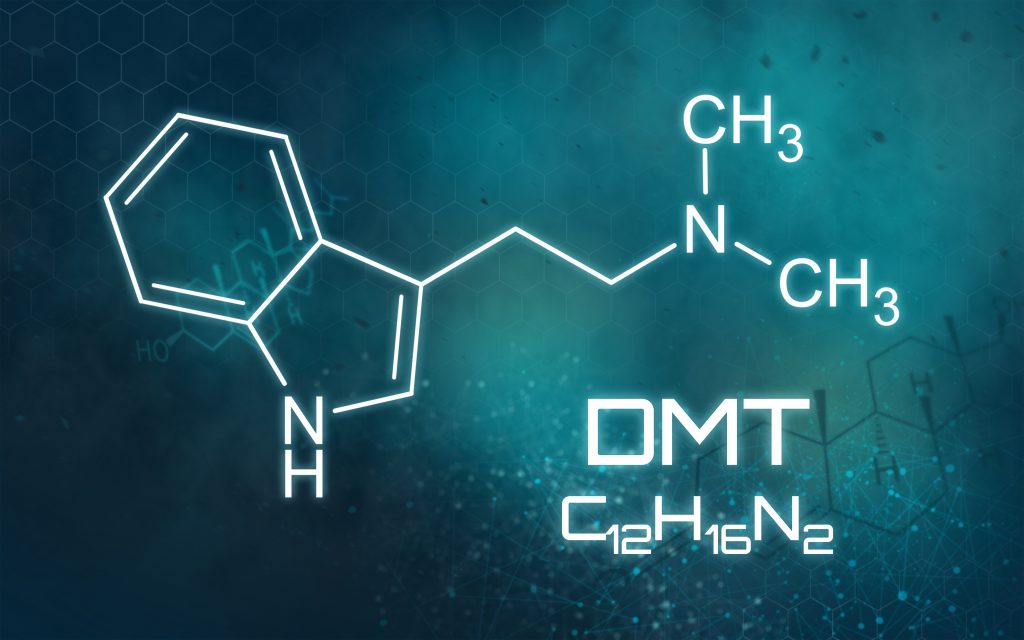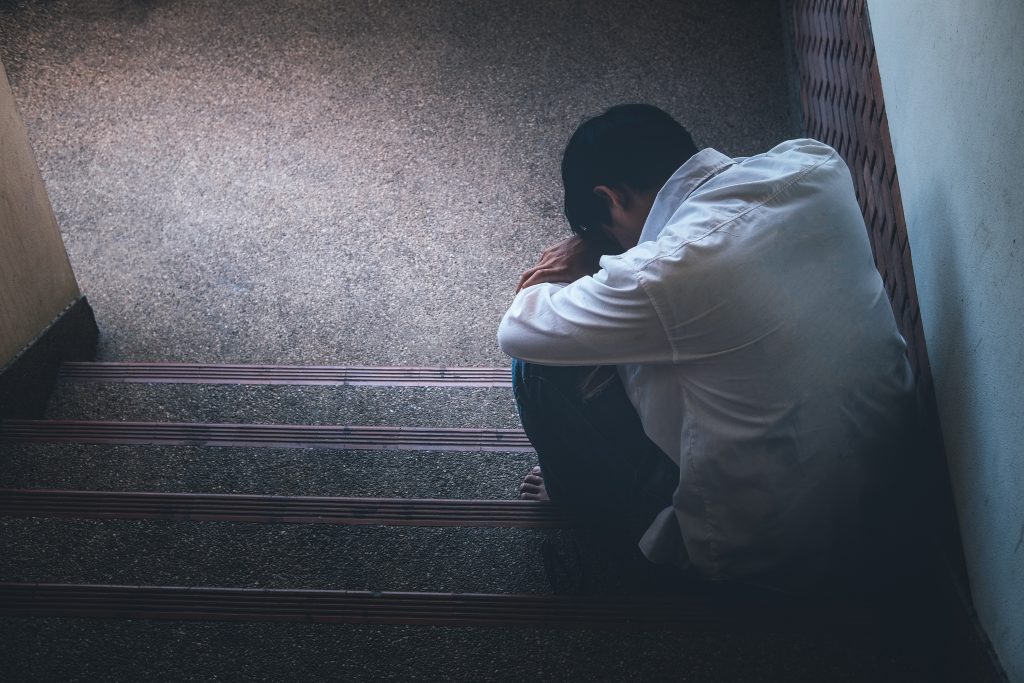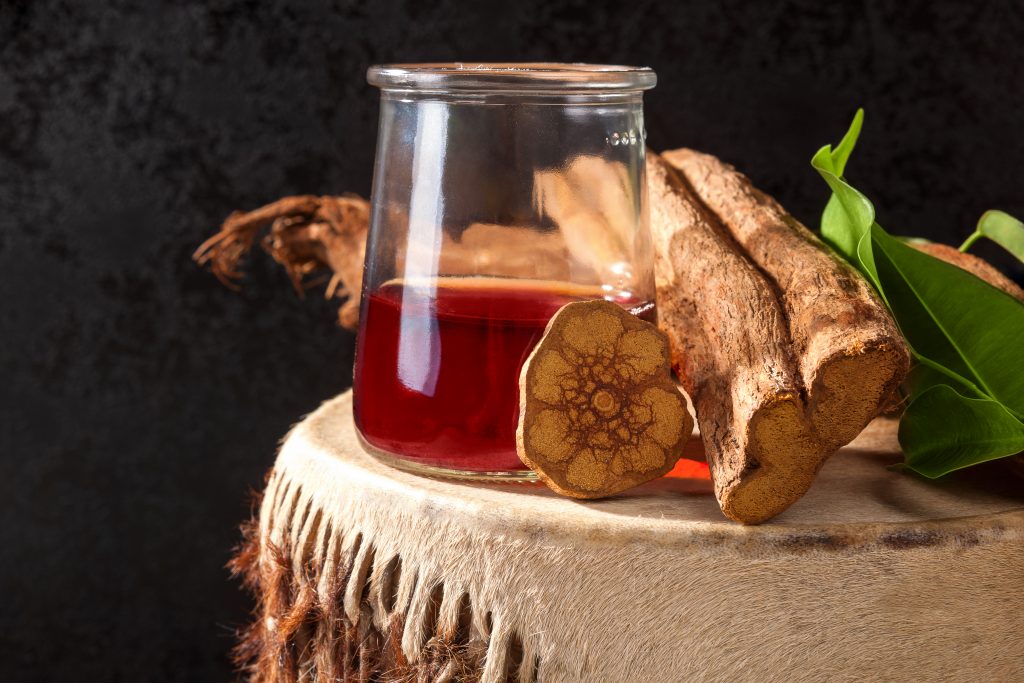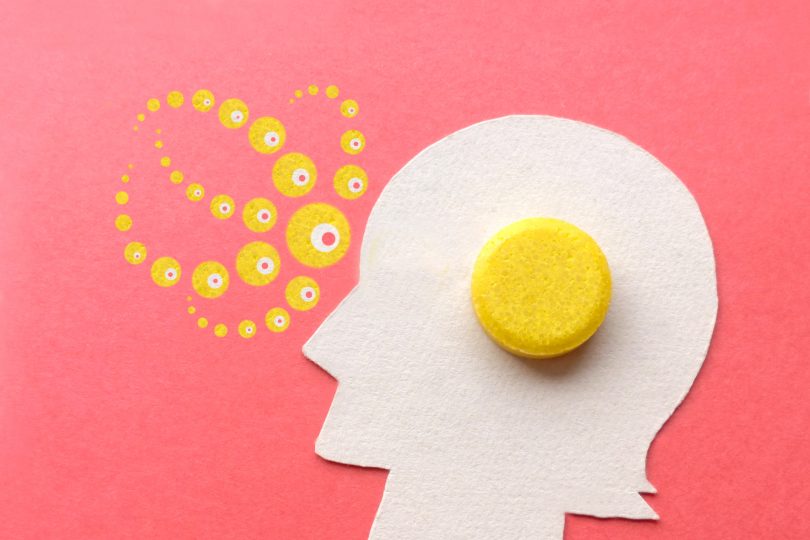As research into medical psychedelics heats up, more drugs have been brought into the spotlight for medical testing. The FDA is pushing for research and products with MDMA and psilocybin in the US, and over in England, the world’s 1st DMT trials into depression have begun.
THC might be one of the most popular compounds on earth, with people using it in every country. The invention of delta-8 THC gives users more options, offering a less intense experience with less psychoactive effect, and for many people, less anxiety. More options means it’s easier to get what you want. So make sure to check out these great Delta-8 THC deals, and figure out which THC is optimal for you!
What is DMT?
DMT – N,N-Dimethyltryptamine, is a hallucinogenic compound that can be found in nature in many plants like Psychotria viridis and Banisteriopsis caapi. It is processed into a white powder that can be vaporized or smoked, brewed into a drink like ayahuasca, snorted like cocaine, or even injected. It has been used as a medicine, and in spiritual applications, for thousands of years. DMT trips can be as short as 30-45 minutes, or as long as 4-6 hours when taken as ayahuasca.
Evidence of DMT use has been found going back at least 1,000 years in the Sora River valley in southwestern Bolivia with the finding of a pouch which contained both DMT and harmine. Together they imply the use of ayahuasca (a psychedelic tea made from the combination of Psychotria viridis – which produces DMT, and Banisteriopsis caapi vine – which produces MAO inhibitors which keep the DMT from breaking down, allowing for the longer trip time.)
Like many psychedelic drugs, DMT acts on serotonin receptors, particularly the 5-ht2a receptor. It acts as a non-selective agonist at most/all receptors. Serotonin is a hormone that’s known for mood stabilization, happiness, well-being, anxiety levels, and feelings of depression. It also plays a big role in communication within the nervous system, and to help regulate basic functions like eating, digestion and sleeping. Too little serotonin has been associated with depressive disorders, and too much is often associated with excessive activity in nerve cells.

There is growing evidence that the human body can actually produce DMT itself by way of the pineal gland in the brain. There has even been research into whether DMT is released right before death in order to quell the anxiety of dying. Most testing into this has been done on animals thus far. Recent research has shed light into the similarities between near-death experiences and DMT use.
DMT was first synthesized by Richard Manske, a Canadian chemist, in 1931. It was not actually located in plants until 1946 when Oswaldo Gonçalves de Lima, a microbiologist, was able to find the compound in nature. The hallucinogenic aspect wasn’t discovered until 1956 when Hungarian chemist and psychiatrist Stephen Szara self-administered DMT he had extracted from the plant Mimosa hostilis.
What are psychedelics in general?
Psychedelics are psychoactive substances with a powerful ability to alter perception, mood, and cognitive processes. Psychedelics are a subset of hallucinogens, and can cause a person to perceptually experience things that are not actually happening – aka a hallucination. Psychedelics are also known for promoting self-introspection, feelings of connection between people, mystical experiences, relaxation, feelings of overall well-being, and euphoria.
They are also associated with negative side effects like bad trips which can cause negative hallucinations and feelings of anxiety and fear. Bad trips, and other negative effects like sweating, vomiting, chills, numbness, and dizziness, can often be entirely avoided with correct dosing. Psychedelics can be made in laboratories, like LSD, or found in nature like DMT and psilocybin. They are not associated with causing major injury or death.
Currently, plenty of research is going on into psychedelic drugs, though research was stymied for years due to psychedelics being made globally illegal with placement in Schedule I of the Convention on Psychotropic Substances 1971. This treaty defines drug legalities worldwide. The scheduling implies the drugs in this category are uniformly dangerous, with no medical value, and the grouping includes DMT and other psychedelics. Even so, plenty of research is going on right now into LSD, MDMA, psilocybin (magic mushrooms), ayahuasca and more.
Psychedelic-assisted therapy
When it comes to psychedelics for therapy, there isn’t a model that I’ve seen where a subject is simply given a dose of a drug and told to have a good time. In the past, and in more recent testing, psychedelics have been/are used as part of psychedelic-assisted therapy. The basic model involves three phases: preparation, psychedelic experience, and integration. Research from the 1950’s-1970’s involves two ways of doing the second phase.

One method was developed by Humphry Osmond, a Canadian psychiatrist, who used one large dose with a therapeutic session, which was termed ‘psychedelic therapy’. Conversely, UK psychiatrist Ronald Sandison used smaller doses that gradually got bigger, over several sessions, which became called ‘psycholytic therapy’. Here is an overview of the three basic stages, regardless of which methodology is used in terms of number of sessions and amount of drug per session:
Preparation phase– In this first stage, the doctor and patient get to know each other, which is important because the relationship between the doctor and patient can affect the psychedelic session. This phase generally involves talk therapy sessions where the patient’s issues can be identified and flushed out, and the patient can be prepared for the following phase. Preparation can involve behavioral directives for the experience, like explaining to the patient they should open a door if one appears in his/her experience, or to go up to a scary creature to ask questions rather than run away, as a way to encourage a patient to deal with difficult situations instead of avoiding them.
Psychedelic phase – In this phase, the patient is given a psychedelic, and then experiences their trip while their doctor gives them general guidance, with little or no analysis at this time. The session can last as long as 8+ hours as it must last as long as the drug. It’s usually carried out in a space that looks and feels comfortable to the patient. In testing, the space is usually set up to look like a living room. These sessions have two doctors present, likely for safety reasons as the patient is being put in an altered state of mind. This phase varies greatly depending on the methods used by the particular doctor. But at all times during this phase, the patient is attended to by their doctor.
Integration phase – This phase occurs soon after the psychedelic phase and can be done in one or multiple sessions, much like the other phases. The doctor facilitates this session, and helps the patient make sense of their experience. To process what happened during the session, to gain some kind of positive value from it, and to integrate an understanding between the psychedelic experience and their issues in reality.
World’s 1st DMT trials for depression
Most of the studies in the 1900’s revolved around testing LSD for use with alcohol addiction. In today’s world, there is growing interest in several compounds. The new trend can be seen clearly in the US (FDA) Food & Drug Administration’s push to get some of these compounds tested and brought to market. In 2017, the FDA designated MDMA as a ‘breakthrough therapy’ for PTSD, and in 2019 it made the same designation for psilocybin from magic mushrooms for major depression.
According to the FDA, the ‘breakthrough therapy’ designation is meant “to expedite the development and review of drugs for serious or life-threatening conditions…” So it suffices to say, that legal or not, there is a growing pressure even within the US government to get these drugs to market.

It’s therefore not shocking that the 1st DMT trials into depression recently started. It was announced in December 2020 that the (MHRA) UK Medicines and Healthcare products Regulatory Agency approved the use of DMT in the first ever clinical trial of the compound, specifically for the treatment of depression. The trials are being done as a collaboration between Small Pharma and Imperial College London. In this first trial, considered a phase I/IIa trial, the drug is being given to a small number of healthy individuals to establish safety and efficacy. A second trial is expected, in which patients will be given DMT in trials as a part of psychedelic-assisted therapy for depression.
The explanation for the first trials, according to Small Pharma’s chief scientific and medical officer Carol Routledge, is that “Taking the drug before therapy is akin to shaking up a snow globe and letting the flakes settle.” She says, “The psychedelic drug breaks up all of the ruminative thought processes in your brain – it literally undoes what has been done by either the stress you’ve been through or the depressive thoughts you have – and hugely increases the making of new connections.” She goes on to say:
“Then the [psychotherapy] session afterwards is the letting-things-settle piece of things – it helps you to make sense of those thoughts and puts you back on the right track. We think this could be a treatment for a number of depressive disorders besides major depression, including PTSD, treatment-resistant depression, obsessive-compulsive disorder, and possibly some types of substance abuse.”
Unlike an LSD, psilocybin, or even ayahuasca trip (in which DMT is mixed with another compound to make it last longer), all of which can last many hours, DMT trips are significantly shorter, usually over within a couple hours max. This might prove preferable to the aforementioned drugs which require significantly more time for therapeutic sessions. These DMT trials into depression can help establish if DMT is suitable for treatment, and if the shorter time period really is beneficial.
Conclusion
While everyone focuses on every minute detail of the fight for cannabis legalization, most people are ignoring the rise in medical psychedelic research and use. Maybe because the topic just hasn’t been promoted enough, which is possibly because there isn’t yet a product to make money off of. But there will be soon, and then, what I’m writing about now, will be front page news in every publication. For now, though it’s still a minor story to the average person, it’s a major one in the medical/pharmaceutical world, with these 1st DMT trials into depression signaling even further expansion of an industry ready to blow off the roof.
Hello! Welcome to CBDtesters.co, your #1 location for the best cannabis-related news from everywhere in the world. Check us out frequently to keep up on the ever-changing world of legal cannabis, and sign up to our newsletter so you’re always in the loop!
Resources
Psychedelic-Assisted Therapy, and How It Works
South Africa Introduces Some of the Most Lax Laws on Cannabis Yet
The New Rise of Medical Psychedelics
Next Stop for Cannabis Industry Investors: Malawi
What is DELTA 8 THC (FAQ: Great resource to learn about DELTA 8THC)
Opening Your Third Eye – How Cannabis Affects the Pineal Gland
Ayahuasca In the Fight Against Drug Addiction
The CBD Flowers Weekly newsletter (your top resource for all things smokable hemp flowers). MDMA – The New Way to Treat PTSD Desert Tripping – A Closer Look at Peyote: Spiritual, Medicinal, & Controversial
The Medical Cannabis Weekly newsletter (International medical cannabis business report)
Florida Bill Aims to Legalize Medical Magic Mushrooms
The Delta 8 Weekly Newsletter (All you need to know about Delta 8 thc) and the Best Delta 8 THC Deals. Best Delta-8 THC Vape Bundles – Winter 2021 Can LSD Treat Your Mental Illness?
Plant Power: Everyday Plants That Activate the Endocannabinoid System Sinaloa Cartel Might Run Mexico’s New Cannabis Industry Merry Cannabis! Christmas and Marijuana
Denver Residents Vote to Decriminalize “Magic Mushrooms”
Africa’s Green Rush and the Mad Dash to Update Cannabis Regulation Nature’s Magic – The Health Benefits of Psilocybin Mushrooms Cannabis Election Results – What Just Became Legal in the United States









